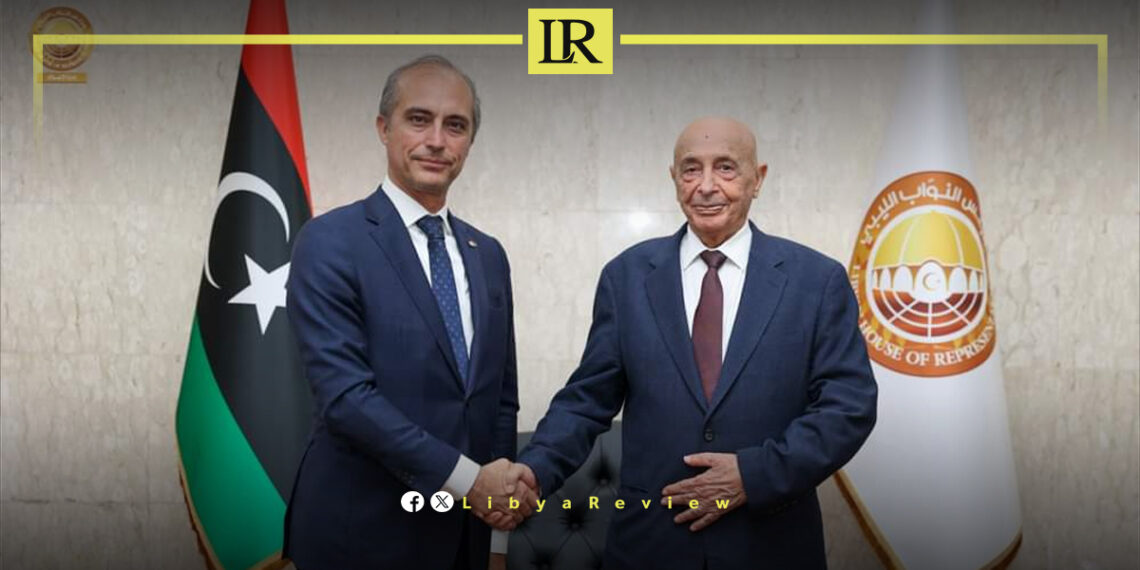On Monday, Libyan Parliament Speaker Ageela Saleh held meetings with Italian Ambassador Gianluca Alberini and French Ambassador Mostafa Mihraje in Benghazi, focusing on Libya’s ongoing political crisis and the need to unify state institutions.
Both meetings underscored the importance of ending the stalemate and holding long-overdue presidential and parliamentary elections to meet the expectations of the Libyan people.
The talks reflected a renewed European push to support Libya’s fragile peace process by fostering institutional unification and advancing plans for elections. Saleh and the ambassadors discussed mechanisms to resolve internal divisions and ensure state institutions—including the Central Bank of Libya—operate under a unified framework, which is essential for restoring political and economic stability.
Libya has been trapped in a cycle of political fragmentation since the 2011 uprising that ousted Muammar Gaddafi. The country currently suffers from parallel governments and divided institutions, with rival factions in Tripoli and Benghazi frequently obstructing efforts toward unity.
Holding presidential and parliamentary elections has long been seen as a critical step to resolve the crisis, but disputes over electoral laws, candidate eligibility, and power-sharing arrangements have delayed the process.
Libyans have grown increasingly frustrated with the repeated postponement of elections, originally scheduled for December 2021. Ageela Saleh, a key political player from the east, has expressed support for elections.
In today’s meetings, Saleh emphasized the need to unify fragmented institutions to ensure elections are conducted transparently and without interference. Italy and France, both of which have vested interests in Libya’s stability, reaffirmed their support for holding elections and offered diplomatic backing to facilitate the unification of state structures.
Both Italy and France have played prominent roles in mediating Libya’s political crisis, although their approaches have occasionally differed. Italy, focusing on migration control and economic cooperation, has traditionally aligned more closely with the Tripoli-based authorities. France, on the other hand, has often been viewed as sympathetic to eastern factions, including the Libyan National Army led by Khalifa Haftar.
However, recent years have seen a convergence of European policies toward Libya, with both Italy and France now pushing for a comprehensive political settlement that includes elections and institutional unification. These meetings with Saleh signal renewed European engagement to break the political impasse and promote lasting stability in the country.


